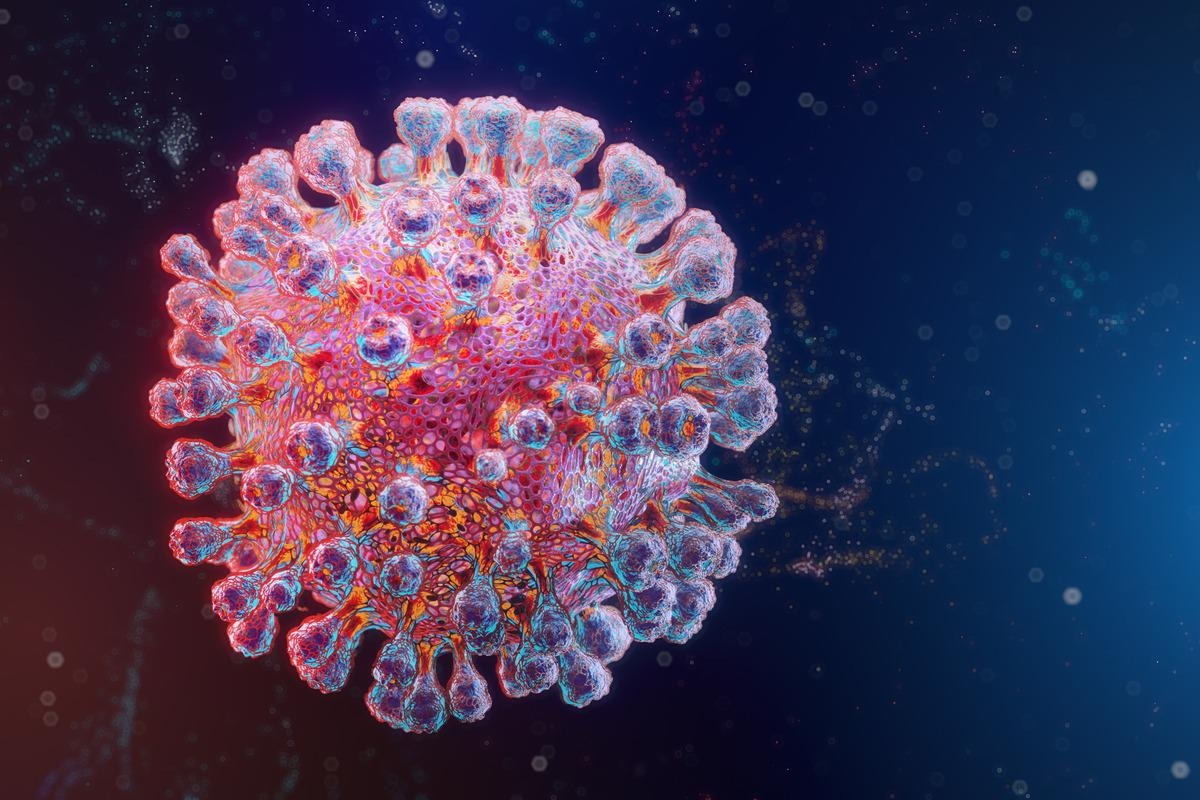A new study posted on the medRxiv* preprint server found that despite a lower coronavirus disease 2019 (COVID-19) vaccine efficacy against reinfection with the Omicron variant, these vaccines demonstrate a marked efficacy against reinfection with severe acute respiratory coronavirus 2 (SARS-CoV-2) Alpha and Delta variants, as well as the Omicron variant––lasting up to nine months, post-vaccination. Therefore, individuals who have been infected by the virus in the past must also obtain COVID-19 vaccination.
 Study: Vaccine effectiveness against SARS-CoV-2 reinfection during periods of Alpha (B.1.1.7), Delta (B.1.617.2) or Omicron (B.1.1.529) dominance: A Danish nationwide study. Image Credit: Willyam Bradberry/Shutterstock
Study: Vaccine effectiveness against SARS-CoV-2 reinfection during periods of Alpha (B.1.1.7), Delta (B.1.617.2) or Omicron (B.1.1.529) dominance: A Danish nationwide study. Image Credit: Willyam Bradberry/Shutterstock

 This news article was a review of a preliminary scientific report that had not undergone peer-review at the time of publication. Since its initial publication, the scientific report has now been peer reviewed and accepted for publication in a Scientific Journal. Links to the preliminary and peer-reviewed reports are available in the Sources section at the bottom of this article. View Sources
This news article was a review of a preliminary scientific report that had not undergone peer-review at the time of publication. Since its initial publication, the scientific report has now been peer reviewed and accepted for publication in a Scientific Journal. Links to the preliminary and peer-reviewed reports are available in the Sources section at the bottom of this article. View Sources
Background
Observational studies have investigated incidences of SARS-CoV-2 reinfection despite COVID-19 vaccination. However, data on the span of COVID-19 vaccine efficacy post a SARS-CoV-2 infection is lacking.
Although reinfections with non-Omicron variants seem to be naturally limited, lower protection against reinfection with the Omicron variant was documented in Denmark and Qatar.
The study
A new study aimed to examine the additional benefits of COVID-19 vaccination in individuals with a past episode of SARS-CoV-2 infection.
A COVID-19 vaccination drive was deployed in Denmark in accession, beginning at the end of December 2020. Thereafter, a booster vaccination campaign was outlined similarly from September 2021. The vaccines administered were Comirnaty (BNT162b2), Vaxzevria (ChAdOx1), Spikevax (mRNA-1273), and Janssen (Ad26.COV2-S).
This nationwide, population-based cohort study also investigated the time since the mass vaccinations when the SARS-CoV-2 variants Alpha, Delta, or Omicron became dominant.
Findings
Higher than 84% of the individuals included received Comirnaty and Spikevax messenger ribonucleic acid (mRNA) vaccines. While most individuals who completed the primary vaccination series during the Alpha period were of advanced age, females, and had comorbidity. On the other hand, the majority of individuals who completed the primary vaccination series during the Alpha period had the lowest median age.
The Alpha period recorded 437 confirmed SARS-CoV-2 reinfections; the vaccine effectiveness (VE) elicited significant levels 14-43 days after vaccination and to 85% about 104 days after vaccination. Reinfections were documented in 1,678 individuals during the Delta wave; the adjusted VE was 88% post-vaccination (14-43 days after). The VE was statistically insignificant 284 days post-vaccination.
With the Omicron variant, although the VE peaked at 60% post-vaccination (14-43 days), it plummeted to 14% within 164-193 days after vaccination. The VE was statistically insignificant after 284-313 days.
The results indicated that the VE reduced with time, and this waning was more rapid for the Omicron variant when compared to the Delta variant. However, VE against hospitalization and death could not be estimated.
The results showed that primary COVID-19 vaccination elicited significant efficacy for protection against SARS-CoV-2 reinfection during the Alpha, Delta, and Omicron waves of the pandemic. Periods of Delta and Omicron dominance recorded the highest short-term VEs – which were lower during the Omicron period than in the Delta period.
Meanwhile, the Alpha wave documented an initially low VE, which rose 104 days post-vaccination. This was likely due to the slower immune response generated by the populations that received vaccinations during this period – who were older and/or immunocompromised.
Additionally, another study from the United States revealed that hospitalized patients who received two doses of COVID-19 mRNA vaccines had a lower VE during the Omicron period than those in the Delta period.
Conclusion
The findings confirmed that vaccinated individuals who were previously infected remain protected against SARS-CoV-2 reinfections from Alpha, Delta, and Omicron variants up to nine months after the completion of the primary vaccination series. However, the degree of protection against the omicron variant is subdued. The results are of relevance to public health and confirm that previously infected individuals also benefit from COVID-19 vaccinations as these vaccines provide immunity to all three SARS-CoV-2 variants of concern.

 This news article was a review of a preliminary scientific report that had not undergone peer-review at the time of publication. Since its initial publication, the scientific report has now been peer reviewed and accepted for publication in a Scientific Journal. Links to the preliminary and peer-reviewed reports are available in the Sources section at the bottom of this article. View Sources
This news article was a review of a preliminary scientific report that had not undergone peer-review at the time of publication. Since its initial publication, the scientific report has now been peer reviewed and accepted for publication in a Scientific Journal. Links to the preliminary and peer-reviewed reports are available in the Sources section at the bottom of this article. View Sources
Journal references:
- Preliminary scientific report.
Nielsen, K. et al. (2022) "Vaccine effectiveness against SARS-CoV-2 reinfection during periods of Alpha (B.1.1.7), Delta (B.1.617.2) or Omicron (B.1.1.529) dominance: A Danish nationwide study". medRxiv. doi: 10.1101/2022.06.01.22275858. https://www.medrxiv.org/content/10.1101/2022.06.01.22275858v1
- Peer reviewed and published scientific report.
Nielsen, Katrine Finderup, Ida Rask Moustsen-Helms, Astrid Blicher Schelde, Mie Agermose Gram, Hanne-Dorthe Emborg, Jens Nielsen, Christian Holm Hansen, et al. 2022. “Vaccine Effectiveness against SARS-CoV-2 Reinfection during Periods of Alpha, Delta, or Omicron Dominance: A Danish Nationwide Study.” Edited by James G. Beeson. PLOS Medicine 19 (11): e1004037. https://doi.org/10.1371/journal.pmed.1004037. https://journals.plos.org/plosmedicine/article?id=10.1371/journal.pmed.1004037.